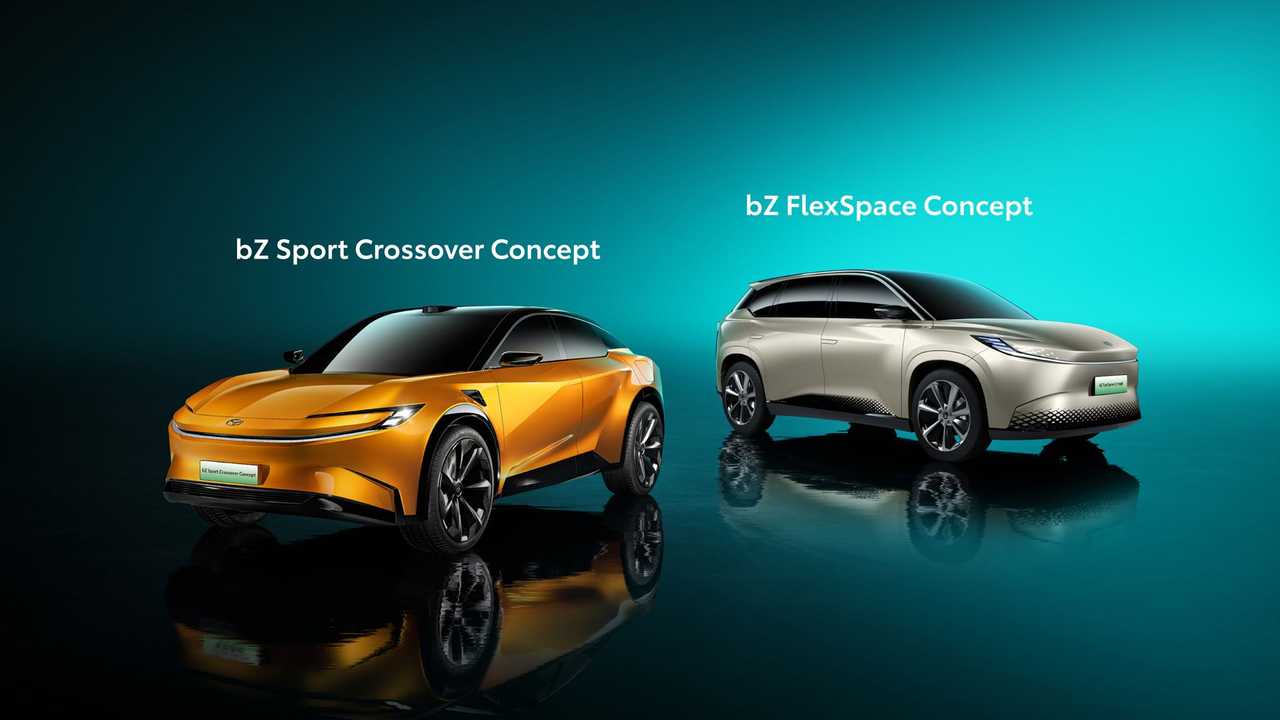Toyota has announced its plan to significantly increase its electric vehicle (EV) production in order to compete with its American and European rivals. The company aims to produce 600,000 EVs by 2025, which is three times its previous goal of 190,000 EVs by 2024. In 2022, Toyota sold 24,000 EVs and plans to sell 150,000 in 2023.
Although Toyota is a leading seller of electrified vehicles in the US with over 20,000 plug-in cars sold in the first half of 2023, its pure EV sales are still relatively low compared to Tesla, Ford, and General Motors. However, Toyota plans to catch up by launching 10 new Toyota and Lexus EVs by 2026.
According to reports, Toyota is planning to launch the electric version of its Hilux pickup truck in Thailand this year, as well as new SUVs in the US and China next year. One of the upcoming models is a three-row electric SUV that will be assembled in the US at Toyota’s Georgetown, Kentucky plant.
Despite Toyota’s ambitious targets, it may still lag behind Tesla and other competitors. Tesla, for instance, expects to produce 1.8 million EVs in 2023 and is actively expanding its production capacity with new factories around the world.
In September 2023, Toyota unveiled its next-generation EV demonstration line in Japan, which included upgrades such as giga casting, a solid-state battery development line, and other manufacturing advancements inspired by Tesla.
Overall, Toyota’s increased focus on EV production reflects the growing demand for electric vehicles and the company’s determination to remain competitive in the global market.
Toyota Plans to Increase Electric Vehicle Production Target, Aiming to Manufacture 600,000 Units by 2025
In a significant move towards achieving its commitment to sustainability and embracing the global shift towards electric vehicles (EVs), Toyota announced its plans to considerably ramp up its EV production target. The renowned Japanese automaker is aiming to manufacture 600,000 electric vehicles by the year 2025. This announcement underscores Toyota’s determination to stay at the forefront of the EV market and further solidifies its position as a key player in the transition to a greener automotive future.
Toyota, known for its pioneering hybrid vehicle technology with its iconic Prius line, has been somewhat conservative when it comes to fully electric vehicles. However, with an increasing demand for EVs and the tightening of emission standards worldwide, the company now recognizes the need to accelerate its EV production plans to align with the aspirations of its customers and societal expectations.
The revised target of 600,000 units marks a significant increase from the initial plan of manufacturing 500,000 units by 2022, demonstrating Toyota’s commitment to addressing environmental concerns and contributing to sustainable mobility solutions. This will involve expanding the company’s electric vehicle lineup to include new and improved models with enhanced performance and extended range.
To achieve this ambitious target, Toyota will be investing heavily in its EV production capabilities, as well as in research and development (R&D) efforts to further refine and advance its EV technologies. The company acknowledges that achieving such goals necessitates continued innovation and collaboration across the entire value chain, from battery development to charging infrastructure. Toyota aims to leverage its expertise and extensive experience in hybrid vehicle technology to propel the development and manufacturing of efficient and reliable electric vehicles.
Moreover, Toyota is actively engaging in partnerships with other industry leaders, such as Panasonic and CATL, to secure a stable supply of batteries, which is a critical component for electric vehicles. Efficient battery production and availability play a vital role in the widespread adoption of EVs, and hence Toyota’s collaborations will help to ensure the realization of their increased production target.
The company’s strategy goes beyond purely focusing on electric vehicles; it also seeks to invest in hydrogen fuel cell technology, recognizing its potential as a sustainable energy alternative. Toyota’s Mirai, a hydrogen fuel cell vehicle, demonstrates the company’s commitment to exploring various clean energy options and offering a diverse range of environmentally friendly vehicles to suit different markets and preferences.
Toyota’s plans to increase its EV production target align perfectly with the global trend of transitioning to electric mobility. Governments worldwide are introducing stricter emission standards and offering incentives to promote the use of EVs. With the target of manufacturing 600,000 EVs by 2025, Toyota is undoubtedly positioning itself as a key player in the electric vehicle market, ready to cater to increasing demand and contribute to achieving a more sustainable future.
In conclusion, Toyota’s decision to raise its electric vehicle production target to 600,000 units by 2025 demonstrates its commitment to sustainability and its determination to stay ahead in the EV market. By expanding its electric vehicle lineup and investing in research and development, Toyota is poised to be a significant player in the transition to greener transportation. This announcement affirms Toyota’s dedication to innovation, collaboration, and environmental responsibility while meeting the growing demands of customers worldwide.

